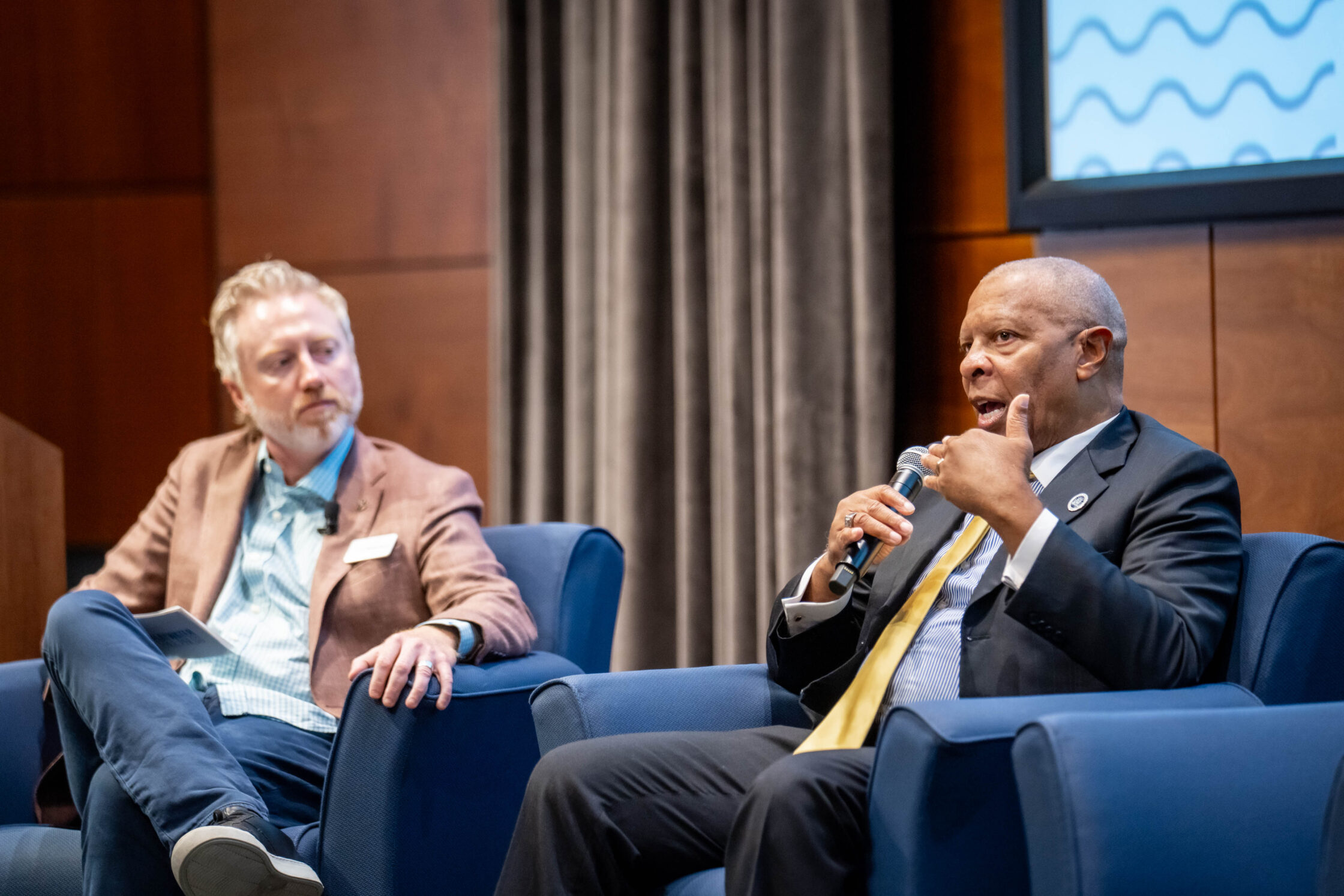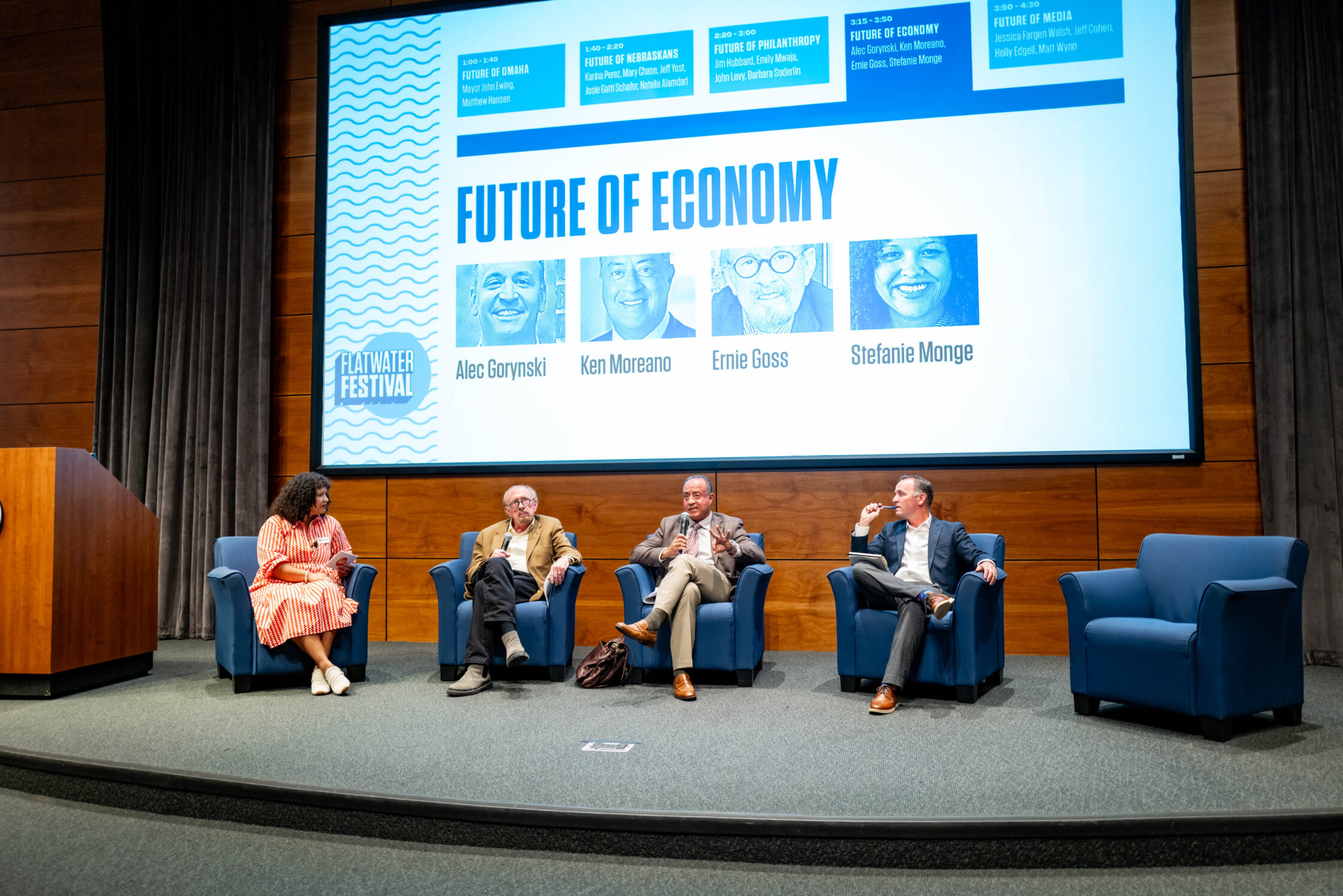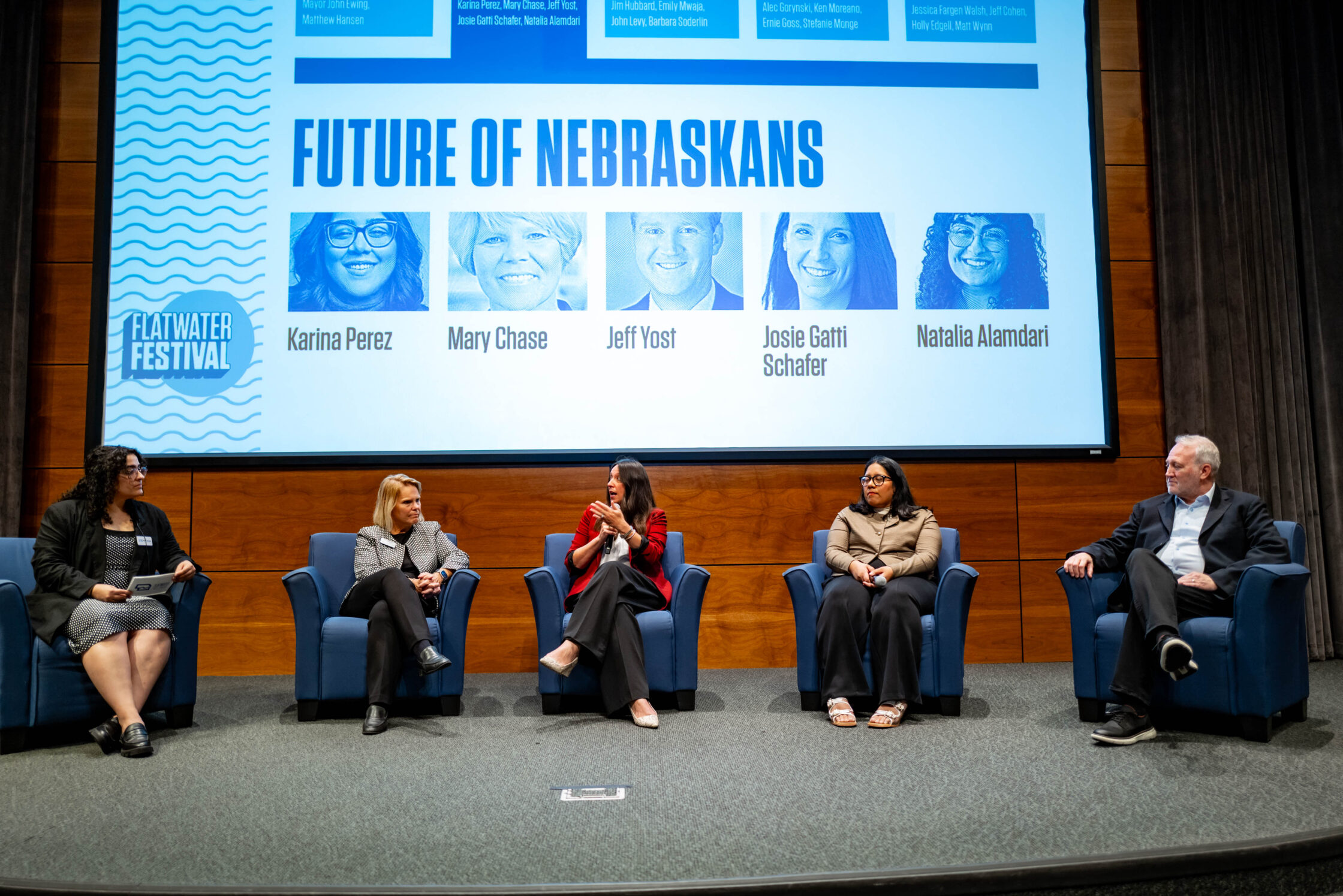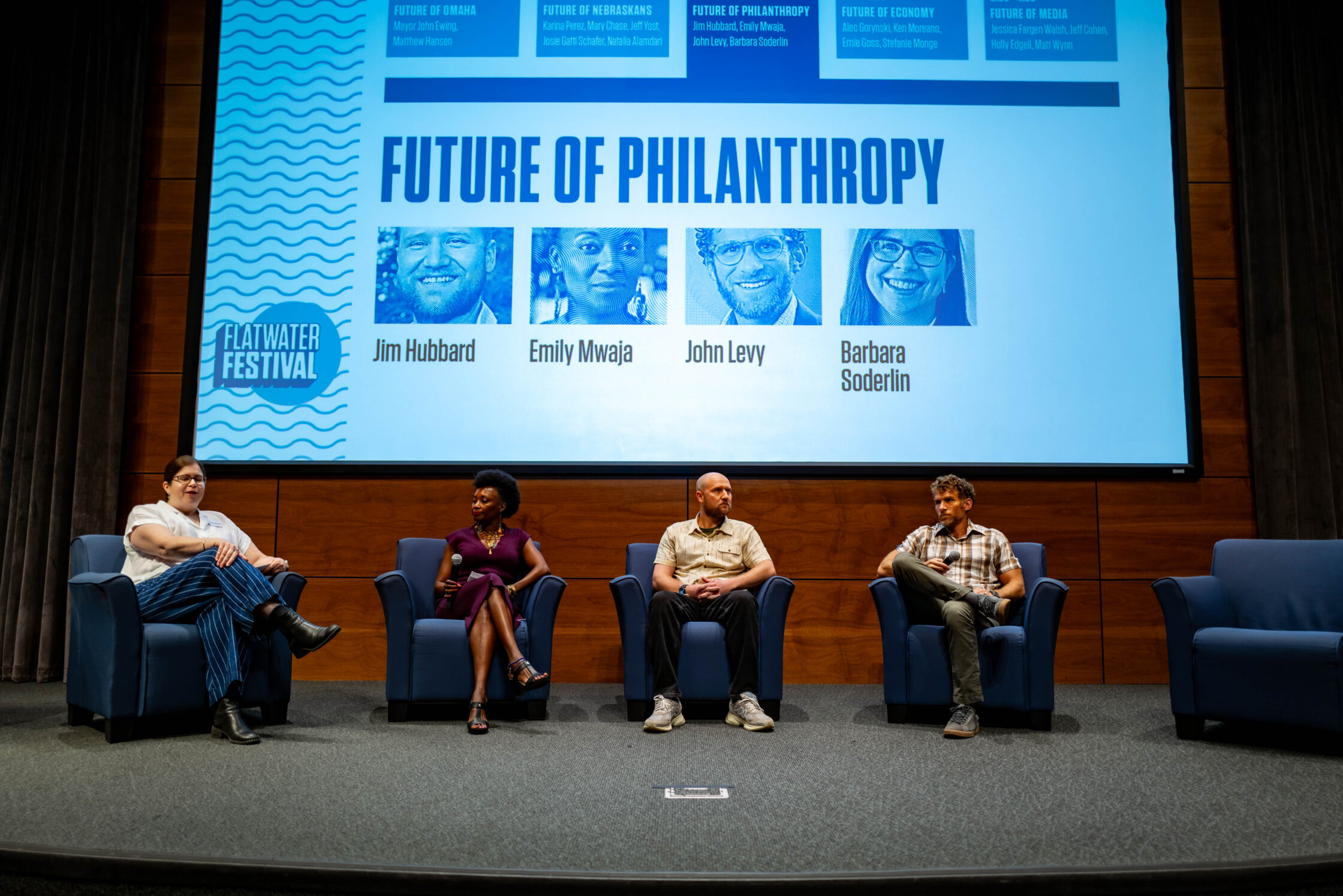On his 100th day in office, Omaha Mayor John Ewing emphasized the nonpartisan nature of his goals to lift the city’s economic standing and declared his disinterest in playing politics with divisive national figures.
The Democratic mayor’s remarks came during a conversation about the future of Omaha with Flatwater Free Press Editor Matthew Hansen at the third annual Flatwater Free Press Festival. The event, hosted in Omaha Wednesday, featured a series of discussions with local leaders, policymakers and journalists on topics of regional and national importance.
Ewing laid out prosperity-boosting objectives to add high-paying jobs, build affordable housing and spur pivotal public projects, including future expansions of the under-construction streetcar.
As other Democratic mayors have emerged as leading White House critics, Ewing said he’s “not in opposition to President Trump or anybody else in elected office.”
“I don’t work against any political party or any person,” Ewing said. “If there’s something that they’re doing right, I’m going to be all in. If there’s something they’re doing that I don’t agree with, I’m going to speak up.”
The longtime Douglas County treasurer became the first elected Black mayor of Omaha in June after defeating Republican incumbent Jean Stothert.
Some national pundits said Ewing’s surprise victory signaled growing frustration with President Donald Trump’s administration. Stothert attributed her loss to low voter turnout and changing political winds in Omaha.
“There’s no doubt Omaha is blue now,” Stothert said days after the election.
Despite the red-to-blue shift, Ewing made the unusual choice to keep his predecessor’s staff. Ewing said he rehired all but one member of Stothert’s team, including Chief of Staff Tom Warren. The one departed employee retired, he noted.
“I don’t know about anybody else, but when I look at the national scene and things that are happening around the world, I would like a little stability,” Ewing said of his staffing decisions.
Ewing said his primary objective is to add good jobs in Omaha, citing a recent report that found the city lags behind Des Moines and other peers in job growth.
“As I often say to young professionals, ‘Please stay. We need you. We want you here, and we’re going to make a city that will be the kind of city you want to live in,’” Ewing said.
Ewing expressed excitement about the $421 million streetcar project he inherited from Stothert’s administration and floated potential expansions.
The 3-mile loop will take riders between downtown and midtown along Farnam and Harney streets.
Light rail ridership in America has been a mixed bag. Urban planners often cite Kansas City’s streetcar as a success — more than 165,000 riders traveled along its 2-mile route in July. Streetcars in Washington, D.C., and Charlotte, meanwhile, have struggled to attract riders despite substantial public investments.
Research suggests streetcars are most successful when they connect densely developed areas, offer more convenience than driving and cost nothing to ride.
Whatever the streetcar’s ridership, the project will have a tremendous economic impact on the city, Ewing said. Future routes to the zoo, to the airport and between North Omaha and South Omaha could create even more economic opportunities, he added.
The streetcar’s unique financing will also help the city add affordable housing, he said. An anonymous donor’s plans to purchase $40 million in streetcar revenue bonds will allow Omaha to add more than 1,000 affordable units as early as next year, he said.
Removing unneeded city regulations that increase the cost of building homes would ease the crunch too, he said.
Like many U.S. cities, Omaha suffers from an acute shortage of affordable housing as new homebuilding fails to keep pace with population growth. For the city’s lowest-income residents — those making less than $25,000 a year — the demand for affordable housing is more than double the supply, according to a recent city report.
When asked how he wants his mayoral tenure to be remembered, Ewing said he’s unconcerned with his legacy.
“My public service has never been about me. It’s always been about how I can impact the city and the people that I love,” Ewing said. “I’m going to do everything I can to move this city forward, and let the historians write what they want.”






